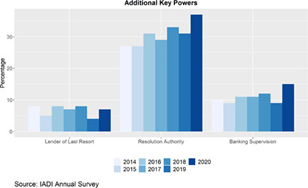What level of financial services M&As did you see in 2012?
It was relatively quiet throughout the first 11 months of 2012 following the completion of Mizuho Bank’s $570 million investment in 15 per cent of Vietcombank in January, 2012.
However, there were two sizeable transactions announced in December, 2012. Bank of Tokyo-Mitsubishi UFJ acquired a 20 per cent equity stake in VietinBank, the listed majority state-owned commercial bank, at cost of $740 million. When this investment is completed in 2013, it will represent the largest ever M&A transaction in the Vietnamese banking sector.
The second was the announcement of HSBC Insurance’s divestment of its 18 per cent stake in Bao Viet Holdings, Vietnam’s largest insurance company, to Sumitomo Life for $344 million in line with HSBC’s Group’s strategy to refocus on core banking operations.
Are you likely to see more banking and finance M&As during 2013?
At this time, it looks like there will be two main drivers of banking M&As in 2013. The State Bank’s banking sector restructuring plan, which led to the merger of Ficombank, TinNghiaBank and Saigon Commercial Bank in December 2011, is expected to generate further M&As amongst the small- to medium-sized local banks, whilst other weaker banks may try to avoid being forced to merge by the State Bank by inviting in stronger equity partners. Secondly, various local joint stock commercial banks and some state-owned commercial banks which will significantly benefit from strategic investors’ experience and technology or skills transfer are still actively looking to sell minority equity stakes to global and regional banks. Some of these banks are relatively large so we may see a one or two sizeable deals during 2013.
However, some investors may be put off by restrictions on foreign ownership when buying into a local bank (30 per cent) or insurance company (49 per cent ) for all foreign investors limiting any investor’s ability to gain control of the company which is often seen as a key pre-requisite for foreign companies. Also, continued enforcement of credit growth caps of up to 20 per cent (depending on the bank), the uncertainty created by the State Bank’s banking sector restructuring plans, potential changes in the regulatory environment and the fragility of the global economy will all impact investors decisions on whether to enter the Vietnamese market.
Why are Japanese firms so interested in investing in the Vietnamese banking market and is this likely to continue?
There have been a number of large banking deals with Japanese investors over the past few years including Vietinbank, Vietcombank and Eximbank. Japanese financial services companies have been looking to invest capital overseas given the challenging market and economic conditions in Japan which limit growth and profits. Vietnam offers good opportunities for long term investors given the significant potential for growth in the banking and insurance markets and typically Japanese companies take a very long term view when assessing any market entry activity. Japanese investment over the past few years has been driven by the limited penetration of banking services in the Vietnamese market, approximately 20 per cent of the population have bank accounts, and the strength of Japanese Yen.
Who are likely to be the big banking market investors in 2013?
We expect Asian financial institutions to continue to drive investments in the Vietnamese financial services sectors as European and US firms continue to feel the effects of the instability in their economies and the impact of significant changes to their regulatory frameworks. Japanese financial institutions remain likely contenders for continuing M&A activity, but we have also seen increased interest from global banks and smaller regional Asian banks and non-bank financial institutions.



























